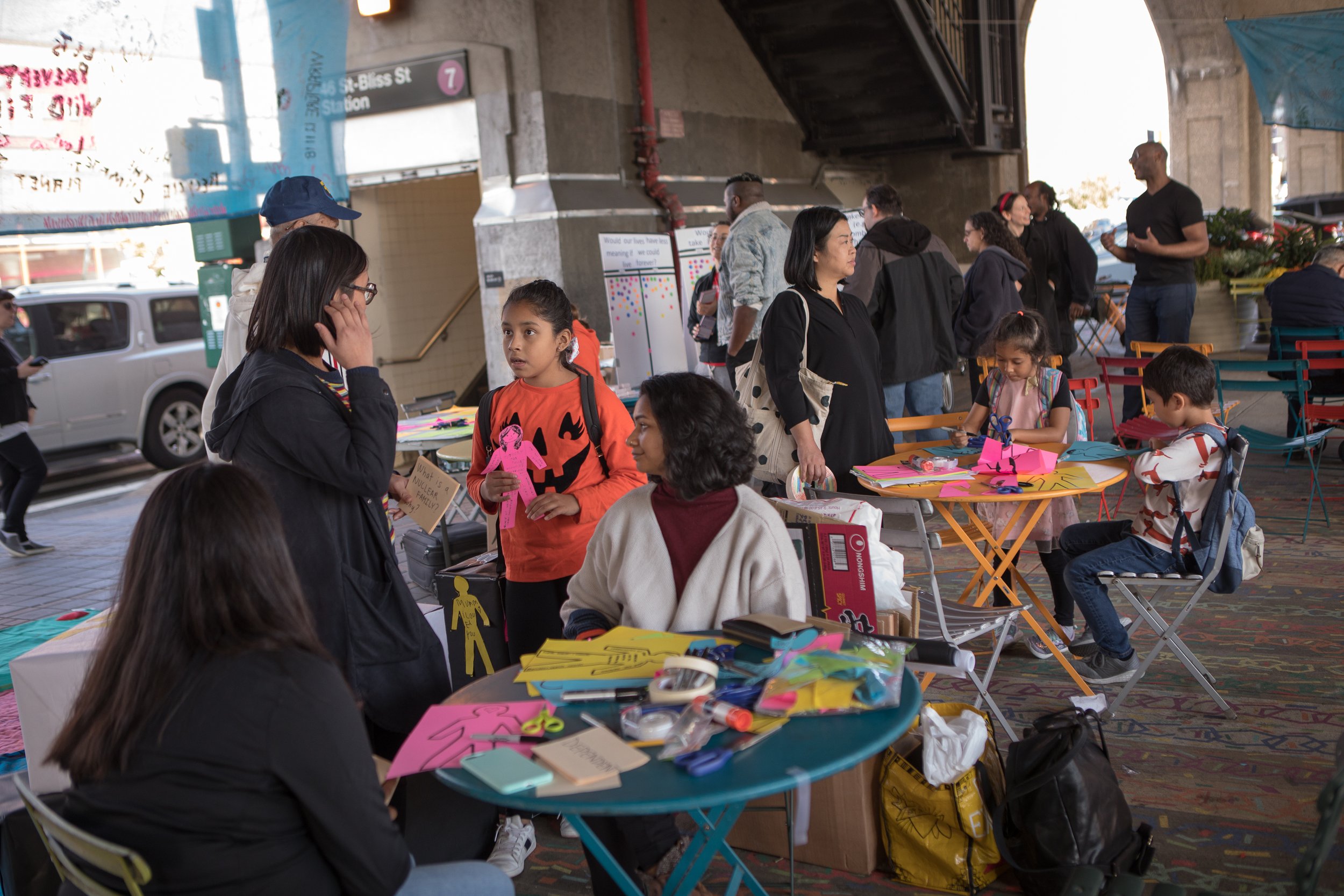The Arisen, a studio supported by MJN team members, are the artists and imagined beings infusing justice, magic, and radical ideas into their art, at every step of making. We’re studying and practicing ways our cultural asset ecosystem can make justice normal.
PROJECTS
All photos we use are licensed by MJN or artists associated with The Arisen. Click on images for more on each project and reach out to ask about the artists and artwork.
WHY
We love art with our whole hearts. It has literally saved some of our team’s lives and given us reasons to fight through darkness. We are far from alone; countless studies show glimmers of its priceless value for our collective health, happiness, and civic participation.
But many of these studies don’t discuss exactly who is benefiting and what the longer term, systemic implications are for who benefits and who doesn't.
As an artist-led program, here is what we know from experience. Beneath the surface are broken systems in which wealth & power are intertwined. This is a norm of financial markets, but cultural assets operate in an upside down world of money laundering, wash trading, asset theft, appropriation, unstable incomes, no health benefits, wage theft, and other consequences of a gig workforce.
Wealth obviously affects who has access to art, who gets to create, and the materials creators use. But a little less obvious is the fact that people in close proximity to wealth, like art buyers & agents, have disproportionate power in the curation and valuation of cultural assets, from paintings to film. How cultural institutions run, what they show, and how artwork is valued reflects their taste, stereotypes, and preferred narratives.
And these buyers and producers are overwhelmingly white. They are also the reason why museum leadership is overwhelmingly white, as are artists in museum collections.
This is how racially biased narratives find their way into mainstream culture, a world in which TV exposure predicts a decrease in self-esteem for all girls and for Black boys, but an increase in self-esteem for white boys. It affects us when we're subliminally barraged by messages that people from our cultures, ancestries, and ethnicities are the anti-hero, sidekick, or extra. We’re being told from a young age that our ideas are evil at worst or don't count at best.
Given that art shapes happiness and civic engagement, we can’t ignore that cultural injustice correlates to health and political injustice. If we're constantly told that our voices don't matter, isn't voting a deep act of resistance? Isn't happiness an act of resistance when systems try to diminish our worth?
System problems need system solutions. We need to share, blueprint, and embody justice in all asset ecosystems, including cultural assets. The Arisen — by and for artists and arts collaborators — offer some alternatives.





